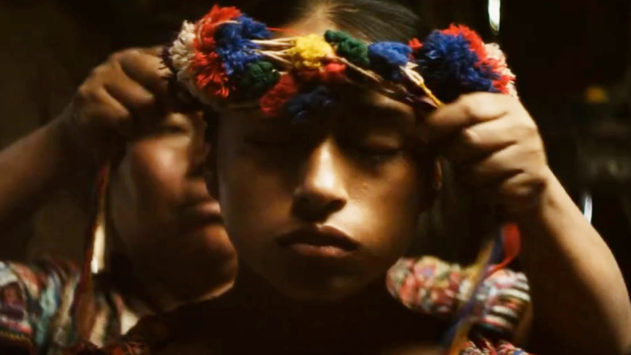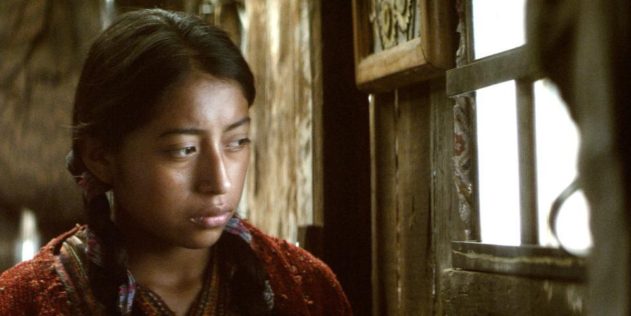IXCANUL, where rite and dream lie
The mother and daughter lead the fat sow to the boar’s pen. They pry open their mouths and pour bottles of rum down their throats to get them in the mood. As they begin to mate, the young woman lingers behind to watch. They need the sow to give birth, for soon the young woman’s fiancé and future family will arrive and they will need the meat for the celebration. Her name is Maria (María Mercedes Coroy) and she has been promised to a louse named El Pepe (Marvin Coroy). He drinks away his paychecks, promises her that getting pregnant the first time they have sex is impossible, and dreams of escaping rural Guatemala for the United States. One day El Pepe doesn’t show up for work; he has run off to El Norte, leaving Maria behind with their unborn child. Her mother Juana (María Telón) convinces her to get rid of it—partly from shame, partly because with the local corn fields infested with sacred snakes they can’t afford another mouth to feed. She forces Maria to drink a strange potion and jump up and down on volcanic rocks. But the child survives. Faced with ostracization and starvation, Maria makes a dangerous decision which might save the community or spell her own doom.
I missed Jayro Bustamante’s “Ixcanul” as it made the rounds on the festival circuit last year. A smash hit at the 65 Berlin International Film Festival that earned a Silver Bear for its filmmaker, it was selected as the official Guatemalan entry for the Academy Award for Best Foreign Film. But it only appeared in a handful of American festivals, making it next to impossible for local critics without big bank accounts and a fortune of Frequent Flyer miles to see it. What a loss. Ixcanul is a gorgeous, powerful film that deserves to be seen. Much like Priscilla Anany’s “Children of the Mountain” (2016), a Ghanian film I was fortunate enough to catch at this year’s Tribeca Film Festival, the film seems less interested in telling a strict story than with emulating a distilled sense of time and space. The film is comfortably languid, interposing Maria’s tribulations with the rhythms of everyday life: comings and goings, bouts of drunkenness and lovemaking, moments of stillness and silence. The plot takes off in the last third following a disastrous misjudgment leaving Maria next to dead. After being taken to a hospital, healthcare workers manipulate the language barrier between them and Maria’s family to seize her baby, telling her that it died and giving them a coffin with a brick wrapped in cloth in place of the body.
Scenes of Maria and her family trying to locate the baby are heart-wrenching and infuriating. And yet the film doesn’t seem to be trying to make a political statement about the treatment of Native Americans like Maria by South American governments. If anything, the official kidnapping seems like just another tribulation for Maria to endure. Perhaps that’s why the scene—and by extension, the film itself—feels so effective.
“Ixcanul” comes out today in select theaters with a national release to follow on August 26th.
news via inbox
Nulla turp dis cursus. Integer liberos euismod pretium faucibua







